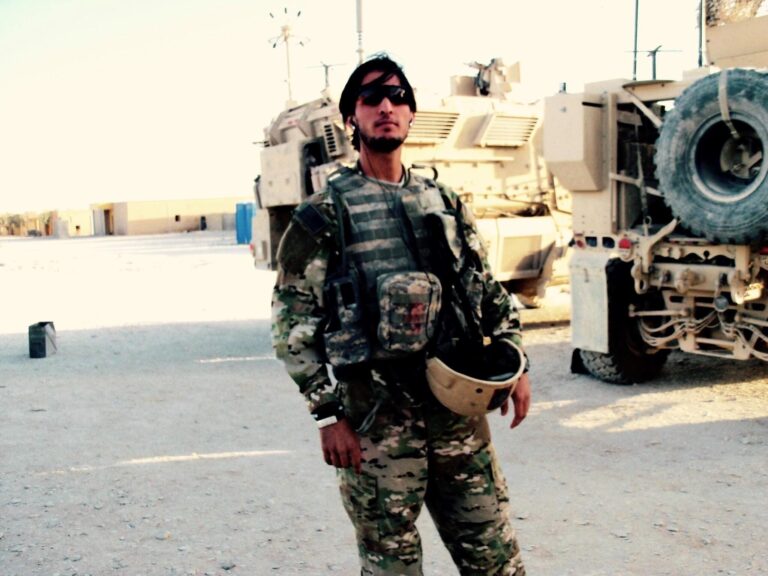A former Afghan translator who worked alongside the U.S. military has been arrested by Immigration and Customs Enforcement (ICE) at a San Diego courthouse, officials confirmed. The detention has sparked concern among advocacy groups who highlight the risks faced by Afghan allies following the U.S. withdrawal from Afghanistan. The circumstances surrounding the arrest and the individualŌĆÖs current legal status remain under review as the case unfolds.
Afghan Translator Detained by ICE at San Diego Courthouse Raises Legal and Humanitarian Concerns
The recent detention of an Afghan translator by ICE at a San Diego courthouse has ignited a wave of concern among legal advocates and humanitarian groups. The translator, who served alongside U.S. military forces during the Afghanistan conflict, was arrested while attending a scheduled court appearance. Critics argue that this move undermines the significant risks translators have faced to assist American troops, often putting their own lives in jeopardy.
Advocacy groups emphasize several key points surrounding this case, including:
- Legal representation challenges inherent in immigration proceedings.
- Humanitarian considerations tied to service and cooperation with U.S. forces.
- Impact on morale for current and former Afghan allies.
Many call for reform of policies affecting those who have risked everything to support American missions abroad. The ongoing debate highlights the complex intersection between immigration law and moral obligations toward individuals whose efforts have been critical to U.S. military operations.
| Issue | Impact | Stakeholders |
|---|---|---|
| Translator Detainment | Potential deportation and separation from family | Translator, ICE, U.S. Military |
| Legal Process | Complicated immigration proceedings | Immigration attorneys, courts |
| Humanitarian Concerns | Questions about U.S. commitments to allies | Advocacy groups, civil rights organizations |
Community and Advocacy Groups Respond to Arrest of US Military Interpreter
Local and national groups have swiftly condemned the detention of the Afghan interpreter, emphasizing the critical role such individuals play in supporting U.S. military efforts abroad. Advocates argue that his arrest at a San Diego courthouse by ICE not only undermines the promises made to those who risked their lives to assist American forces but also raises serious concerns about the fairness of the immigration process for translators and their families. Many community leaders assert that this case highlights systemic flaws and the urgent need for policy reform to protect those who stand with the U.S. in conflict zones.
Grassroots organizations and legal aid networks have mobilized to offer support, outlining several key demands:
- Immediate review of the interpreterŌĆÖs case and potential release on humanitarian grounds.
- Clearer protections for translators who qualify for Special Immigrant Visas (SIVs) facing deportation risks.
- Increased transparency in ICE operations within courthouses to safeguard due process rights.
| Group | Action Taken | Focus Area |
|---|---|---|
| Translators Alliance | Legal aid and public campaign | Immigration justice |
| Veterans for Human Rights | Letter to Congress | Policy advocacy |
| San Diego Immigrant Fund | Financial assistance | Community support |
Challenges Faced by Afghan Allies in US Immigration System Explored
The immigrant experience for Afghan allies who supported the US military is fraught with persistent barriers, often compounded by lapses in administrative processes. Many of these individuals, including translators who risked their lives alongside American forces, encounter lengthy delays and stringent vetting procedures in securing visas and asylum. Their contributions, though critical on the battlefield, frequently fail to translate into swift or fair treatment within the immigration system. This discrepancy leaves them vulnerable to legal uncertainties and sudden enforcement actions, such as arrests in public spacesŌĆöeven courthousesŌĆöwhere they anticipated legal protection.
Key obstacles include:
- Bureaucratic backlog: Extensive processing times that outlast the immediacy of their claims
- Communication gaps: Language barriers and inconsistent legal guidance hindering case progress
- Security concerns: Heightened scrutiny leading to complicated vetting despite prior military service
- Limited access: Difficulties obtaining legal representation and understanding complex immigration law
| Issue | Impact | Suggested Reform |
|---|---|---|
| Backlogged Applications | Delayed resettlement and prolonged uncertainty | Dedicated processing lanes for military allies |
| Language Barriers | Misunderstood legal options and missed deadlines | Expanded linguistic support and cultural liaisons |
| Increased Enforcement Actions | Detentions in sensitive venues like courthouses | Clear protections during active legal proceedings |
Policy Recommendations to Protect Afghan Translators Serving US Military Efforts
To ensure the safety and dignity of Afghan translators who have tirelessly supported US military operations, it is imperative that current immigration policies undergo crucial revisions. These frontline linguists must be granted expedited and transparent access to Special Immigrant Visas (SIVs), eliminating bureaucratic delays that leave them vulnerable to detention or deportation. Furthermore, providing clear legal pathways and adequate counsel throughout the application process will protect translators from unjust arrests or ICE actions, such as those witnessed recently in San Diego.
Key policy measures should include:
- Establishment of dedicated liaison offices within ICE and immigration courts focused exclusively on SIV cases.
- Implementation of protective status designations for translators during visa processing periods.
- Mandatory training for immigration officials on the unique risks and contributions of Afghan interpreters.
- Expansion of community support programs offering legal aid and resettlement assistance.
| Recommendation | Expected Impact |
|---|---|
| Expedited SIV processing | Reduced detentions and faster resettlement |
| Protective status during review | Safeguards against ICE arrests |
| Focused training for immigration workers | Increased empathy and informed decision-making |
| Community legal aid expansion | Improved support and advocacy |
In Conclusion
The arrest of the Afghan translator at a San Diego courthouse highlights ongoing challenges faced by individuals who aided U.S. military operations overseas and their struggles to secure safe passage and legal status in the United States. As authorities continue to enforce immigration laws, advocates emphasize the need for clearer pathways and protections for those who risked their lives alongside American forces. The case remains under investigation, with further details expected to emerge in the coming weeks.




